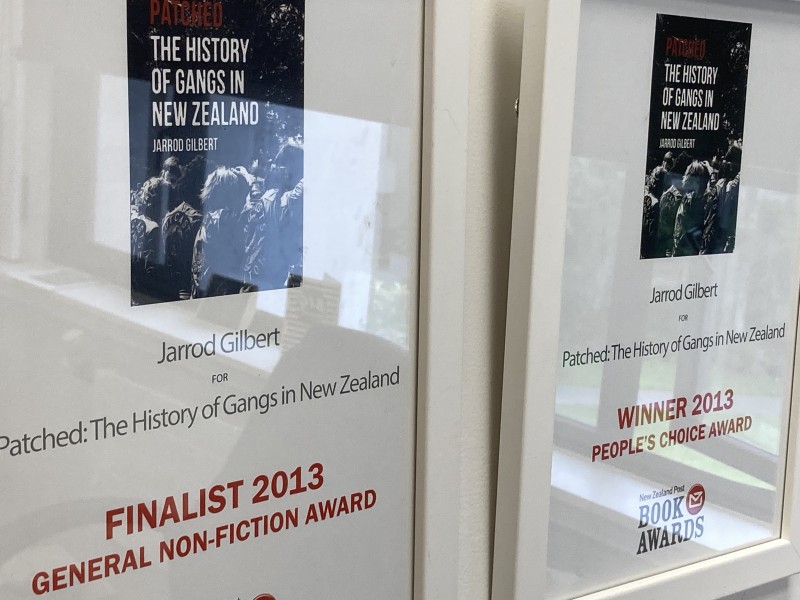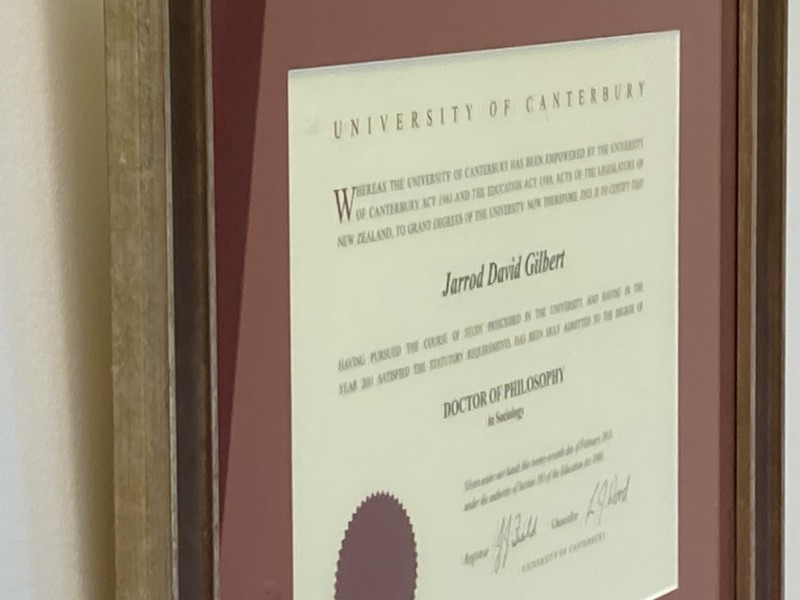You might expect him to have written a few books and to have spent much of his life in a library but Gilbert runs his path a little wilder than most. He’s been in bar brawls, gang houses, and has had one serious motorcycle accident. He wrote the most comprehensive study of gangs in New Zealand, after eight years of time spent in the field hanging out and learning from the gangs. Name another professor who can bring up a story where he and famous British actor and documentary maker Ross Kemp were involved in a jail break in Papa New Guinea.
But this is all by design. Gilbert loves what he does.
“The most interesting parts of my job are in the field. You leave the ivory tower and go out and hang out with people who ordinary people don’t associate with.”
Born in 1974, Gilbert grew up in Auckland without any exposure to what would become his calling card in academia.
“It was boringly middle-class. I came from a good family, born parents still together. I don’t think I’d see a gang member until I decided to study them.”
Gilbert went to Westlake Boys where he says, although he was a good student academically, he had some attitude problems.
“I was a pretty questioning student. In fact, all the things that got me in strife at school are the traits that made me successful at my job. The stuff they tried to cane out of me have served me incredibly well.
“I just questioned teachers and thought having a laugh was as important as showing up to class.”
Gilbert studied advertising at Auckland at AUT, getting a scholarship to work at an agency in Auckland. After getting an offer to work for the New Zealand Herald, he received some advice a mentor, Peter Grace, gave him that changed the trajectory of his life.
“I got offered a job working as a gopher at the herald and he said don’t take that job, it’ll kill your creativity. So, I said I’ll move to Christchurch and write a novel. And he said if you move to Christchurch and write a novel you’ll become an alcoholic. A brilliant alcoholic, but an alcoholic.
“He said go to university, it’ll keep you focused. I never did write that novel but that advice was the best advice I ever received in my life.”
At the University of Canterbury Gilbert thrived studying sociology. He became the Student Assocation president. While studying, Gilbert had a lightbulb moment talking with Greg Newbold, a professor of criminal justice, at the time.
“There’s small moments in life where if you know it or not, everything changes. I was in a lecture with Greg Newbold in my second year.
“He said there’s a dearth of research on New Zealand gangs. I remember the line. I remember thinking to myself that’s so peculiar. How can there be so little research on such an important issue?”
Gilbert wrote an essay and an honours project on the topic, and then started his PHD. He warns against doing PHDs, calling them a daunting task.
“I don’t recommend them unless you’re really committed to them. I got sick to death of people asking when mine would be finished.”
Gilbert figured that the best way to write about gangs would be to hear from the gangs themselves. And so, he jumped into the field, attempting to ingratiate himself with New Zealand’s underworld. The reaction from people around him was about what you would expect.
“Most of my peers thought it wasn’t a worthwhile project. It wasn’t seen as academic enough. I was inspired by sociologists from the Chicago school of the early nineteen hundreds who say you have to go to the laboratory of the street.
“My supervisor didn’t think it was really possible. My mother thought I was going to get murdered. Overall, there wasn’t a huge amount of encouragement.”
Gilbert knew there would be ethical concerns.
“I sure as shit wouldn’t be allowed to go into the field. Ethics would have stopped me in a heartbeat. But the way I go around ethics was just to lie to them. Which isn’t recommended but there’s no way on Earth they would have allowed me to do what I did.”


